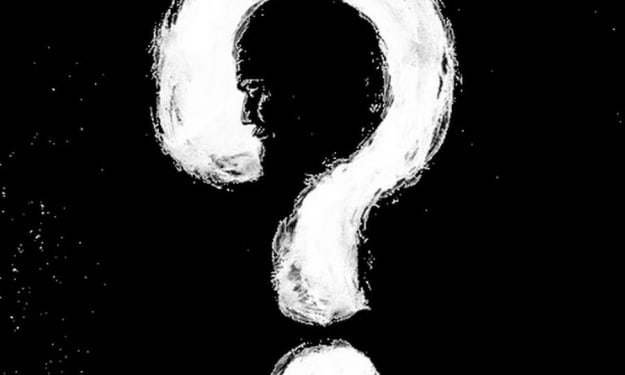The Era of Artificial Intelligence Has Begun
The Era of Artificial Intelligence Has Begun

New chatbot innovation can talk, snicker, and sing like a human.What comes next is difficult to say.
A similar man-made brainpower with a smooth, charming voice captivates and intrigues its human clients — being a tease, making wisecracks, satisfying their cravings, and in the end prevailing upon them.
I'm summing up the plot of the 2013 film "Her," wherein a desolate contemplative person named Theodore, played by Joaquin Phoenix, is enticed by a menial helper named Samantha, voiced by Scarlett Johansson.
However, I should depict the scene on Monday when OpenAI, the maker of ChatGPT, flaunted a refreshed variant of its A.I. voice associate at an occasion in San Francisco.
The organization's new model, called GPT-4o (the o means "omni"), will give ChatGPT converse with clients access in a substantially more similar way — recognizing feelings in their voices, dissecting their looks and changing its tone and rhythm relying upon what a client needs. On the off chance that you request a sleeptime story, it can turn down the volume to a murmur. On the off chance that you want exhortation from a cheeky companion, it can talk in a lively, snide tone. It could sing on order.
The new voice highlight, which ChatGPT clients will want to begin involving for nothing before long, quickly attracted correlations with Samantha from "Her." (Sam Altman, OpenAI's CEO, who has applauded the film, posted its title on X after Monday's declaration, making the association everything except official.)
Via virtual entertainment, clients hailed the appearance of an A.I. voice collaborator that will at long last figure out them, or possibly imagine that it does.
In a progression of live exhibits on Monday, OpenAI representatives flaunted ChatGPT's new capacities. One requested that ChatGPT read him a story — then, at that point, peruse it again more decisively, utilizing the voice of a robot. ("Starting sensational mechanical voice," it answered.) One more requested that it sing "Cheerful Birthday." ChatGPT excelled at the two undertakings, and it likewise performed capably when representatives requested that it act as a constant interpreter between dialects.
However, the genuine executioner included was how ChatGPT's voice itself changed. One second, it was a sing-songy soprano. The following, it moved into a lilting contralto. It stopped for impact, laughed at its jokes, and added filler phrases like "well" and "how about we see" for additional authenticity. It sounded more humanlike than certain people I know.
It likewise appeared to have a funny bone. At a certain point during a demo, an OpenAI worker took in a weighty, misrepresented gasp. ChatGPT heard him and answered, "Imprint, you're not a vacuum cleaner."
For a long time, A.I. voice colleagues have been restricted by their powerlessness to get on the subtleties of discussion, like tone and close-to-home effect. Engineered A.I. voices, similar to those utilized by Siri and Alexa, will generally be level and indifferent — they sound similar whether they're giving the upcoming weather conditions figure or are finished to let you know that your treats.
Furthermore, as I found as of late when I endured a month conversing with a gathering of A.I. "companions," a major issue with the present A.I. voice models is speed. It's difficult to neglect you're conversing with a robot when each answer has a three-second deferral.
OpenAI has tended to the dormancy issue by giving GPT-4o what is known as "local multimodal support" — the capacity to take in sound prompts and examine them straightforwardly, without changing them over completely to message first. That has made its discussions quicker and more liquid, to the point that assuming the ChatGPT demos were precise, most clients will scarcely see any slack whatsoever.
This amounts to a very different emotional experience. In the case of utilizing past A.I. partners who wanted to converse with an impartial bookkeeper, the new ChatGPT feels like a well-disposed, effusive colleague. (Yet one who at times rambles garbage — however don't we as a whole have one of those?)
These showings, alongside other A.I. news from late days — including reports that Apple is in converses with OpenAI to utilize its innovation on the iPhone, and is setting up a new, generative A.I.- controlled rendition of Siri — signal that the time of the separated, unoriginal A.I. partner is concluding.
All things considered, we're getting chatbots displayed after Samantha in "Her" — with energetic knowledge, essential close-to-home instinct, and a large number of expressive modes.
A few clients might be repulsed by them. However, many will come to cherish and value the new variety of A.I. collaborators — and some will experience passionate feelings for, as Theodore does.
The most telling subtlety of Monday's demo, in my view, was how OpenAI's representatives have begun conversing with ChatGPT. They humanize it persistently, and treat it with reverence — frequently inquiring, "Hello, ChatGPT, how's it going?" before peppering it with questions. They cheer when it nails a troublesome reaction, how you could pull for a gifted kid. One OpenAI worker even stated, "I ❤️ ChatGPT" on a piece of paper and showed it to ChatGPT through his telephone's camera. ("That is so sweet of you!" ChatGPT answered.)
These are prepared A.I. specialists, who realize without a doubt that they are bringing measurable expectations from a brain organization, not conversing with a conscious being. Furthermore, some of it could be acting skills. In any case, if OpenAI's workers can't avoid regarding ChatGPT as a human, is it any secret whether most of us will?
All things considered, clients were at that point attempting to fool ChatGPT into behaving like their sweetheart, even before the redesign. What's more, my new trial with A.I. companions demonstrated to me that the innovation expected to make practical A.I. friends as of now exists, regardless of whether the execution is more than a little flawed at this point.
(The New York Times sued OpenAI and its accomplice, Microsoft, in December, guaranteeing copyright encroachment of information content connected with A.I. frameworks.)
Here and there, the decision to display a chatbot after Samantha from "Her" is an odd one. The film is not an idealistic image of A.I. friendship, and it closes — fair warning! — with Theodore's getting his heart broken by Samantha.
Be that as it may, despite the film's preventative message, moving ahead is the only real option now. After Monday's declaration, one OpenAI worker posted, maybe a piece unfavorably:
"You will turn out to be tragically captivated with it."
About the Creator
Chanchal Ahmed
My goal is to make my clients content with my work.
I always ascertain the quality of my work.
I believe in the best and quality service.
Hire me to get the accurate outcome.
Enjoyed the story? Support the Creator.
Subscribe for free to receive all their stories in your feed. You could also pledge your support or give them a one-off tip, letting them know you appreciate their work.






Comments (1)
Hey, just wanna let you know that this is more suitable to be posted in the 01 community 😊